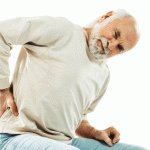Does Your Back Hurt? Cause And Treatments Described Right Here!
 Our backs play an important role in our health, comfort, and mobility. When back pain arises, it often results in a severely reduced quality of life. Individuals with back pain related to illness, injury, or other factors may miss work, withdraw from social activities, reduce physical movement, and experience depression.
Our backs play an important role in our health, comfort, and mobility. When back pain arises, it often results in a severely reduced quality of life. Individuals with back pain related to illness, injury, or other factors may miss work, withdraw from social activities, reduce physical movement, and experience depression.
For the best chance at effectively treating back pain, individuals must understand the many factors that go into this ailment. In addition, patients and doctors may need to look beyond conventional treatment methods to find a way to reduce or eliminate discomfort.
What Are the Common Causes of Back Pain?
Back pain can originate from one or more sources, including:
- Poor physical fitness – Neglecting to develop supportive muscles can make backs more susceptible to physical strain, especially in people carrying extra weight.
- Age – Individuals as young as 30 (but usually closer to 40) can begin to experience age-related back pain.
- Medical conditions – Conditions such as ankylosing spondylitis (a type of arthritis), spinal stenosis, scoliosis, fibromyalgia, endometriosis, kidney stones, and pregnancy can result from hereditary or environmental factors and may be the source of chronic back pain.
- Manual labor – Constant pushing, pulling, lifting, or twisting can place excessive stress on the spine.
- Sedentary labor – On the opposite extreme, slouching over a desk all day can also lead to back pain.
- Mechanical issues – Ruptured disks, tense muscles, disk breakdowns, and spasms can all cause pain.
Identifying the source of back pain can be difficult, especially when no apparent injury or illness has occurred. Although diagnostic tools such as MRIs, X-rays, and CT scans can be useful in determining the causes of a limited number of back problems, they often provide little to no information to help a physician treat the pain.
What Effective Treatment Options Exist?
Over the years, doctors have provided many different types of treatments to patients with back pain. Traditional treatments have included:
- Oral painkillers – Physicians have prescribed painkillers in a wide range of potencies, from ibuprofen to Vicodin.
- Spinal injections – For inflammation or nerve damage in the back, medical providers may use epidural, nerve block, or discography injections to relieve pain.
- Surgery – Procedures such as laminectomies, spinal fusion, discectomies, disc replacements, foraminotomies, and interlaminar implants have been used to treat the underlying conditions behind back pain.
Unfortunately, these forms of treatment have found low levels of long-term success, and may exacerbate back problems. Numerous medical authorities have indicated that back pain is an “over-treated” condition that costs billions of healthcare dollars each year. Recent research has indicated that common treatments for back pain, including bed rest, surgery, and medication, do more harm than good for patients.
Instead, doctors are beginning to recommend exercise and physical therapy for individuals with back pain. Patients who perform regular exercises to improve the flexibility and strength of their backs often experience reductions in or complete relief of symptoms. Exercise can also help prevent future back pain for individuals not yet experiencing this symptom.
Additional ways individuals can take charge of their back health include:
- Maintaining a healthy weight – In addition to regular exercise, a nutritious diet can help keep excess weight in check.
- Using back-friendly work techniques – For those in physically demanding jobs, learning to lift and perform other duties with less strain on the back can help prevent future problems.
Back pain can be difficult to explain and extremely hard to live with. However, working with a respected physician to explore all possible causes and treatments is the best way for patients to find relief.
IMPORTANT NOTE: You must consult with your doctor! Before starting, stopping, or changing any part of your diet, supplants, medication, exercise routine, or anything related to your health or a medical issue please consult your doctor first.
Sources:
http://www.niams.nih.gov/Health_Info/Back_Pain/back_pain_ff.asp
http://www.uihealthcare.org/2column.aspx?id=236245
http://ehs.okstate.edu/modules3/back/a1-back.htm
http://www.npr.org/blogs/health/2014/01/13/255457090/pain-in-the-back-exercise-may-help-you-learn-not-to-feel-it
Category: Back Pain


